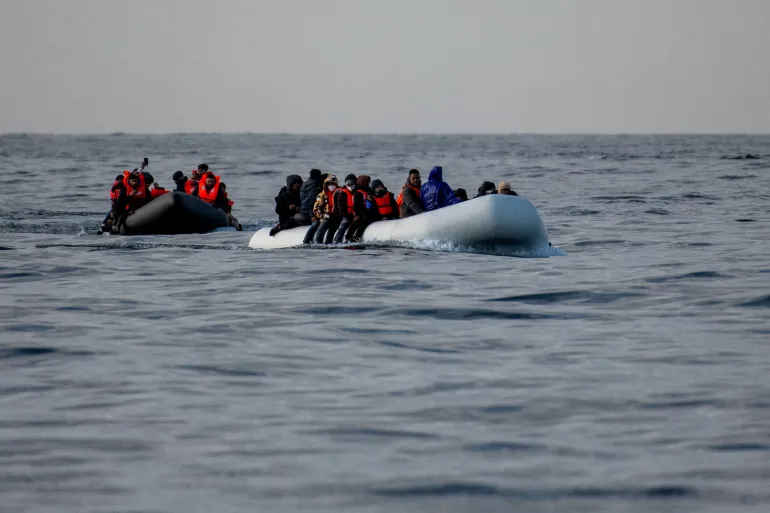At least four migrants have died and several others are missing after two separate tragedies in the English Channel within just two days. These deaths highlight the serious dangers that people face when attempting to cross one of the busiest and most dangerous waterways in the world to reach the United Kingdom.
Authorities in northern France confirmed that three migrants died overnight while trying to cross from Pas-de-Calais. Rescue teams were able to save one person, but at least three others are still unaccounted for and feared to have drowned. The search for survivors continues, though officials say survival becomes less likely with every passing hour in the Channel’s cold and rough waters.
This tragic event followed another incident only a day earlier. On Tuesday, a woman lost her life when a dinghy carrying migrants suffered what officials described as a “catastrophic deflation” around 16 kilometers off the coast of Dover. UK rescue services, including the Coastguard, Border Force vessels, lifeboats, and a helicopter, rushed to the scene. While many passengers were pulled from the water, the woman could not be saved despite being given CPR by Royal National Lifeboat Institution (RNLI) crews. She was airlifted to Dover but later pronounced dead.
The UK government described the death as “shocking and saddening.” A Downing Street spokesperson said: “Our immediate thoughts are with all of those who have been affected. This latest tragedy underlines the terrible dangers of small boat crossings, and we continue to do everything we can to prevent callous criminals exploiting vulnerable people.”
Despite repeated warnings, the number of irregular crossings continues to rise sharply. Official figures show record numbers of arrivals in the first half of 2025, higher than in previous years. On Saturday alone, more than 1,000 people arrived in small boats, making it one of the busiest days of the year. That same day, five people were detained after reaching Kingsdown on the Kent coast without being intercepted, the first such landing reported since December 2022.
The rise in Channel crossings has fueled political debate in both the UK and France. Governments on both sides of the Channel have signed bilateral deals to manage migration, including agreements that allow the UK to return some irregular arrivals to France while also creating limited legal pathways for others. However, critics say these policies do not go far enough to provide safe alternatives, leaving desperate people with no choice but to risk their lives at sea.
Humanitarian organizations and aid groups argue that restrictive asylum measures are directly contributing to more deaths. Enver Solomon, CEO of the Refugee Council, said: “Every death in the Channel is preventable. Safe routes save lives. Without them, more people will die.” Groups working with migrants in northern France have also reported that overcrowded camps, lack of shelter, and ongoing police crackdowns are forcing people into the hands of smugglers.
The Channel is one of the world’s busiest shipping lanes, with hundreds of vessels passing through daily. Combined with unpredictable weather and unsafe, overcrowded boats, crossings are extremely dangerous. Migrants often pay smugglers thousands of euros for the journey, only to find themselves in unseaworthy dinghies with little safety equipment. Many who survive the journey describe it as terrifying, saying they had no choice but to risk it in search of safety, work, or to reunite with family in the UK.
According to official data, tens of thousands of people have already attempted the crossing in 2025, and the number continues to climb. While the majority survive, each death represents a personal tragedy for families who often lose their main source of income. For communities and aid groups, the repeated loss of life is a reminder that safe and legal migration routes are urgently needed.
The English Channel tragedies have once again sparked calls for action. As governments argue over responsibility, human rights groups stress that every life lost could have been prevented with better policies. Without change, the Channel will likely continue to claim more lives of people seeking safety and a better future.

